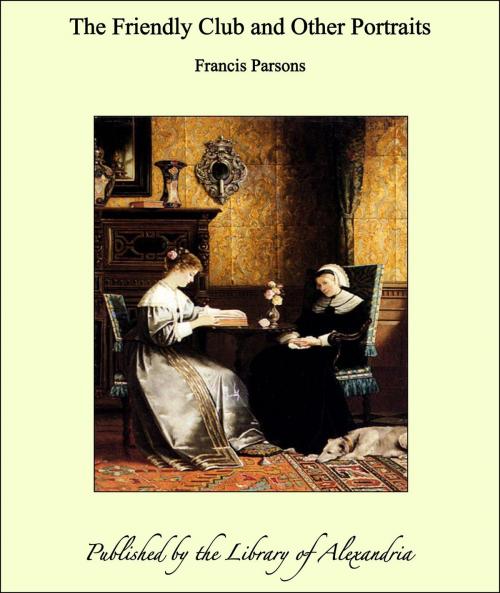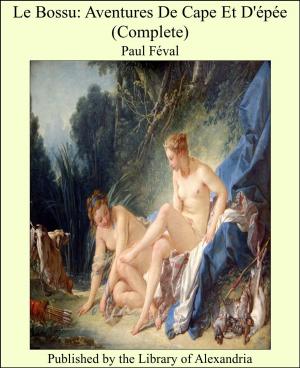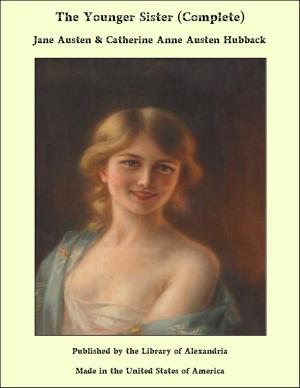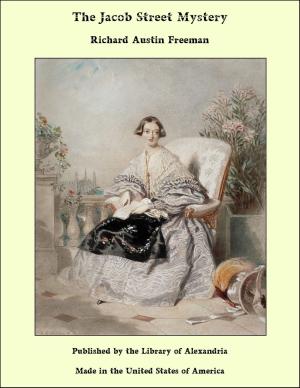The Friendly Club and Other Portraits
Nonfiction, Religion & Spirituality, New Age, History, Fiction & Literature| Author: | Francis Parsons | ISBN: | 9781465554345 |
| Publisher: | Library of Alexandria | Publication: | March 8, 2015 |
| Imprint: | Language: | English |
| Author: | Francis Parsons |
| ISBN: | 9781465554345 |
| Publisher: | Library of Alexandria |
| Publication: | March 8, 2015 |
| Imprint: | |
| Language: | English |
The Friendly Club A HARVARD man, not exempt from the complacency sometimes attributed to graduates of his university, once observed, according to Barrett Wendell, that the group of forgotten litterateurs, who toward the close of the eighteenth century attained a brief measure of fame as the "Hartford Wits," represents the only considerable literary efflorescence of Yale. The remark did not fail to provoke the rejoinder, doubtless from a Yale source, that nevertheless at the time when the Hartford Wits flourished no Harvard man had produced literature half so good as theirs. How good this literature was considered in its day is not readily understood by the modern reader, for from the Hudibrastic imitations and heroic couplets of these writers, whose brilliance was dimmed so long ago, the contemporary flavor has long since evaporated. Indeed there is no modern reader in the general sense. It is only the antiquarian, the literary researcher, the casual burrower among the shelves of some old library who now opens these yellow pages and follows for a few moments the stilted lines that seem to him a diluted imitation of Pope, Goldsmith and Butler. Professor Beers of Yale ventures the surmise that he may be the only living man who has read the whole of Joel Barlow's "Columbiad." Yet in their time this coterie of poets, who gathered in the little Connecticut town after the close of the war for independence, became famous not only in their own land but abroad, and the community where most of them lived and met at their "friendly club"—was it at the Black Horse Tavern or the "Bunch of Grapes"?—shone in reflected glory as the literary center of America. No Boswell was among them to record the sparkling epigrams, the jovial give and take, the profound "political and philosophical" debates of those weekly gatherings. Yet imagination loves to linger on the old friendships, the patriotic aspirations, the common passion for creative art, the wooing of the Muses of an older world, thus dimly shadowed forth against the background of the raw young country just embarking on its mysterious experiment. Do not doubt that these personages whose individualities are now so effectually concealed behind the veil of their sounding and artificial cantos were real young men who cherished their dreams and their hopes. One can see them gathered around the great wood fire in the low ceiled room redolent of tobacco, blazing hickory and hot Jamaica rum. Here is Trumbull, the lawyer, the author of "M'Fingal" which everybody has read and which has been published in England and honored with the criticism of the Quarterly and Edinburgh Reviews. He is a little man, rather frail, rather nervous, not without impatience, with a ready wit that sometimes bites deep. Here is Lemuel Hopkins, the physician, whose lank body, long nose and prominent eyes are outward manifestations of his eccentric genius. His presence lends a fillip to the gathering for he is an odd fish and no one can tell what he will do or say next. Threatened all his life with tuberculosis he is nevertheless a man of great muscular strength and during his days as a soldier he used to astonish his comrades by his ability to fire a heavy king's arm, held in one hand at arm's length. In his verses he castigates shams and humbugs of all kinds, whether the nostrums of medical quacks or the irreverent vaporings of General Ethan Allen
The Friendly Club A HARVARD man, not exempt from the complacency sometimes attributed to graduates of his university, once observed, according to Barrett Wendell, that the group of forgotten litterateurs, who toward the close of the eighteenth century attained a brief measure of fame as the "Hartford Wits," represents the only considerable literary efflorescence of Yale. The remark did not fail to provoke the rejoinder, doubtless from a Yale source, that nevertheless at the time when the Hartford Wits flourished no Harvard man had produced literature half so good as theirs. How good this literature was considered in its day is not readily understood by the modern reader, for from the Hudibrastic imitations and heroic couplets of these writers, whose brilliance was dimmed so long ago, the contemporary flavor has long since evaporated. Indeed there is no modern reader in the general sense. It is only the antiquarian, the literary researcher, the casual burrower among the shelves of some old library who now opens these yellow pages and follows for a few moments the stilted lines that seem to him a diluted imitation of Pope, Goldsmith and Butler. Professor Beers of Yale ventures the surmise that he may be the only living man who has read the whole of Joel Barlow's "Columbiad." Yet in their time this coterie of poets, who gathered in the little Connecticut town after the close of the war for independence, became famous not only in their own land but abroad, and the community where most of them lived and met at their "friendly club"—was it at the Black Horse Tavern or the "Bunch of Grapes"?—shone in reflected glory as the literary center of America. No Boswell was among them to record the sparkling epigrams, the jovial give and take, the profound "political and philosophical" debates of those weekly gatherings. Yet imagination loves to linger on the old friendships, the patriotic aspirations, the common passion for creative art, the wooing of the Muses of an older world, thus dimly shadowed forth against the background of the raw young country just embarking on its mysterious experiment. Do not doubt that these personages whose individualities are now so effectually concealed behind the veil of their sounding and artificial cantos were real young men who cherished their dreams and their hopes. One can see them gathered around the great wood fire in the low ceiled room redolent of tobacco, blazing hickory and hot Jamaica rum. Here is Trumbull, the lawyer, the author of "M'Fingal" which everybody has read and which has been published in England and honored with the criticism of the Quarterly and Edinburgh Reviews. He is a little man, rather frail, rather nervous, not without impatience, with a ready wit that sometimes bites deep. Here is Lemuel Hopkins, the physician, whose lank body, long nose and prominent eyes are outward manifestations of his eccentric genius. His presence lends a fillip to the gathering for he is an odd fish and no one can tell what he will do or say next. Threatened all his life with tuberculosis he is nevertheless a man of great muscular strength and during his days as a soldier he used to astonish his comrades by his ability to fire a heavy king's arm, held in one hand at arm's length. In his verses he castigates shams and humbugs of all kinds, whether the nostrums of medical quacks or the irreverent vaporings of General Ethan Allen















